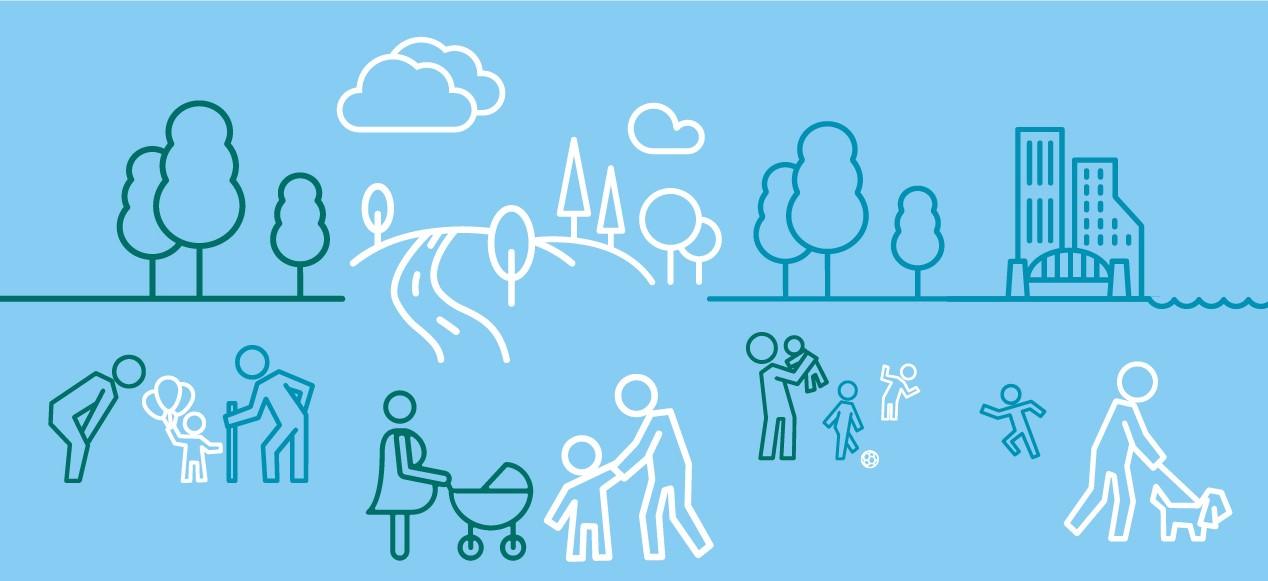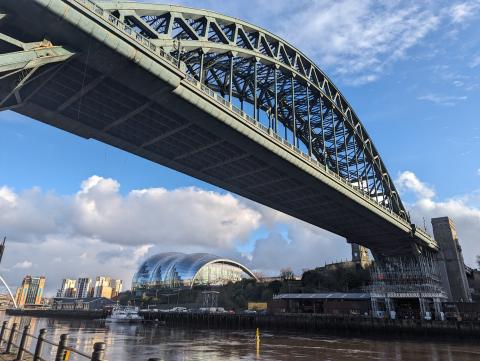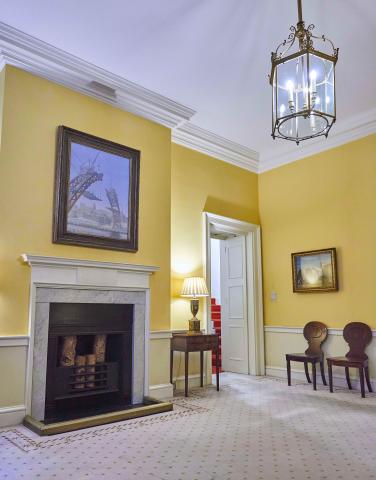17 July 2019
| | 5 min readPublic willing to take action on air pollution – but support is needed
A partnership approach involving the public, businesses, councils and government is needed to tackle harmful levels of air pollution and many people are already, or would be willing, to play their part.

But improvements to public transport and walking and cycling routes are needed before many people, who said they rely on their cars for essential journeys, would feel able to change their travel behaviour.
These are some of the independent findings from the air quality public consultation that took place over 11 weeks earlier this year in the North East.
The consultation attracted over 20,000 responses from individuals, businesses, community groups and voluntary organisations – the largest participation in a survey of its type in the UK to date.
Newcastle, Gateshead and North Tyneside councils were seeking views on proposals for measures to improve air quality, which were developed following a government legal direction demanding action.
The direction ordered councils to develop proposals that would bring pockets of excessive pollution levels to within legal limits in the shortest possible time. Councils had to consider the impact of a charging Clean Air Zone, and any alternative measures would need to be at least as effective.
As well as a potential charging Clean Air Zone, the Tyneside councils also consulted people on alternative proposals for a Low Emission Zone with tolls on city centre road bridges.
The consultation responses included over 50,000 comments – all of which have been read as part of the independent analysis – from people from across the North East and beyond.
A number of key themes repeatedly emerged and there was widespread awareness that air quality is a serious health concern and a recognition that action is required to tackle it.
Proposals to charge drivers to use certain routes or to prevent some vehicles entering certain zones prompted a great deal of debate with many raising concerns about the potential financial and economic impact on people and businesses and the risk of shifting traffic and pollution into other areas.
But the majority of respondents agreed with proposals to help people prepare for air quality measures, including financial support to help people switch to public transport or upgrade vehicles and exemptions or grace periods for certain drivers.
Cllr Arlene Ainsley, cabinet member for transport and air quality at Newcastle City Council, said: “Through this consultation people have made clear to us their feelings about potential measure for tackling traffic-related air pollution.
“The majority of people are aware of the issue and agree that it must be addressed – but what comes across very strongly is that there were some very real concerns about the proposals we consulted on and people feel that further support and infrastructure improvements are needed to help people cope with such measures.
“We welcome this feedback and we are listening.”
Councils are continuing to develop and reshape the proposals in response to these independent findings and taking into account the latest modelling data, which is currently being gathered.
Cllr Martin Gannon, leader of Gateshead Council, said: “We still have further work to do to determine the measures for dealing with this serious public health issue.
“It’s clear from the consultation that people have strong views about what the priorities and major challenges are.
“The legal direction from government means that we have to take action but we know there are no easy answers to this issue. The extensive consultation feedback, together with the results of the latest testing and modelling, will be invaluable in helping us to identify the final option.”
Cllr Carl Johnson, cabinet member for transport and environment at North Tyneside Council, said: “Everyone is affected by air pollution and it’s essential that we address this problem to make our area cleaner and healthier.
“We have been clear from the start of this process that we not only want to improve air quality and public health but also ensure that we protect jobs and the local economy and avoid a negative impact on business and on vulnerable people.
“The consultation feedback shows that many people who took part, while they may have concerns about some aspects of the proposals, were in agreement that this is an important balance to strike and this will be central to our continued work in developing final proposals.”
A revised legal direction from government earlier this month confirmed that the updated options would be submitted to Defra in August ahead of the final proposals in November and measures would be implemented from 2021.
A full copy of the independent analysis of the consultation feedback can be found at www.breathe-cleanair.com
If you would like to give us feedback on our website, please complete this short online form.






